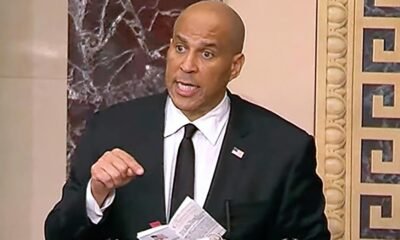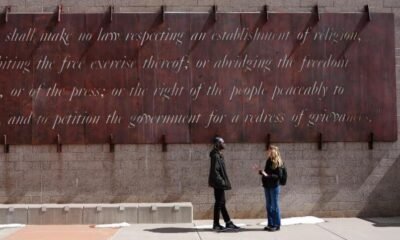faith
Experience the Power of Martin Luther King Jr.’s ‘I Have a Dream’ Speech

On August 28, 1963, Dr. Martin Luther King, Jr. delivered his iconic “I Have a Dream” speech, marking a pivotal moment in the civil rights movement. This landmark address took place during the March on Washington, where King reminded the nation of its unfulfilled promises towards racial equality.
Reflecting on America’s history, King emphasized that five score years earlier, the Emancipation Proclamation had sparked hope among millions of enslaved people. However, he lamented that a century later, systemic racism and economic inequality still plagued African Americans, trapping them in cycles of poverty and disenfranchisement.
He called attention to the irony of a nation that had defaulted on its promise of freedom, equating it to issuing a bad check to its citizens of color. The urgency of the moment demanded immediate action, as King urged the nation to abandon complacency and to strive for a society rooted in justice and brotherhood.
King reinforced that the civil rights movement would not waver in its pursuits and emphasized the importance of dignity and nonviolence in their struggle. He voiced solidarity among all Americans, regardless of race, highlighting that true freedom for one group is inextricably tied to the freedom of all.
Addressing the crowd, King made clear that the journey toward justice was far from over. He asserted that dissatisfaction remained prevalent as long as African Americans faced barriers to basic human rights, such as the right to vote. His message was powerful: justice must flow abundantly, like waters, until equality is achieved.
King also recognized the struggles of those in attendance, many of whom had faced incarceration and brutality in their quest for freedom. Despite their challenges, he urged perseverance, expressing faith in the eventual realization of their collective dream: a nation where all individuals would be judged by their character, not the color of their skin.
With his vision of equality, King imagined a future where former adversaries could unite in harmony. His dream encompassed the entire nation, envisioning a transformation of states traditionally associated with oppression into havens of justice and equality.
Ultimately, King’s profound hope was that through solidarity and shared struggles, a new era of freedom would emerge. He concluded with a rousing call for liberation, encouraging all Americans to echo a song of freedom that resonates with profound meaning.
The enduring relevance of King’s words invites reflection on the ongoing pursuit of justice today. As society grapples with the legacies of inequality, many of his aspirations remain unfulfilled, urging continual movement towards achieving true equality for all.


















